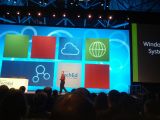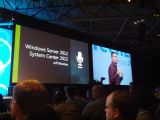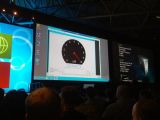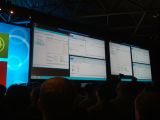Microsoft kicked off the 2012 edition of its TechEd EMEA conference in Amsterdam, The Netherlands, where Brad Anderson, corporate vice president, management and security division, presented some of the latest advancements the company has made in the server platform area.
Today's environment requires for new, continuous services to be designed for the always-connected devices that people use, Brad Anderson explained while on stage.
This also means that the new hardware and software need to be designed to work together to enable the building of new, better applications.
According to him, we're now entering the era of the cloud OS, with modern data centers that need to be designed as converged systems.
Microsoft's newest cloud products, such as Windows Azure, provide these features, by offering support for multi-core systems, high performance storage, better networking and the like.
Through Windows Azure, customers can deploy scalable infrastructure and services, while they can also design their data centers to withstand failures, thus providing users with continuous service.
Moreover, the latest features included in Windows Azure also allow for fast and easy sharing of resources, while enabling automation.
The same increased automation capabilities can be found in Windows Server 2012 as well, through PowerShell, designed in the latest flavor of the platform to support up to 2400 cmdlets.
But this is not all, as Windows Server 2012 also comes with increased scalability capabilities through Hyper-V, while being designed as a resilient platform.
It enables administrators to deploy patches without downtime of the service, also providing them with storage virtualization to benefit from great sharing capabilities.
The latest virtualization capabilities included in Windows Server 2012 are, in fact, one of its strongest points, Jeff Woosley, Principal Program Manager at Microsoft Corp. for Windows Server and Cloud, explains.
The latest enhancements brought to the platform enable the virtualization of workloads that were believed to never offer support for that.
Moreover, the platform can now deliver support for up to 64 processor cores per virtual machine (VM), while supporting up to 1 terabyte of RAM for it, and 64 terabytes of virtual disk space.
The performance capabilities of Windows Server 2012's Hyper-V are impressive as well. On stage at TechEd EMEA, he demoed a machine delivering 1 million I/Os.
Overall, the idea is simple. Microsoft is focused on delivering cloud platforms that can provide customers with massive virtualization capabilities and massive performance, to enable them to deliver better services to their users.
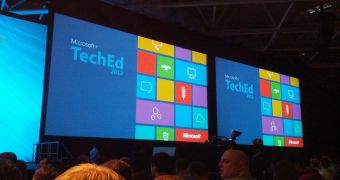
 14 DAY TRIAL //
14 DAY TRIAL // 

